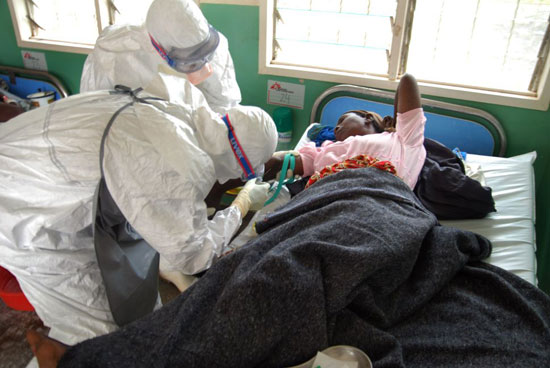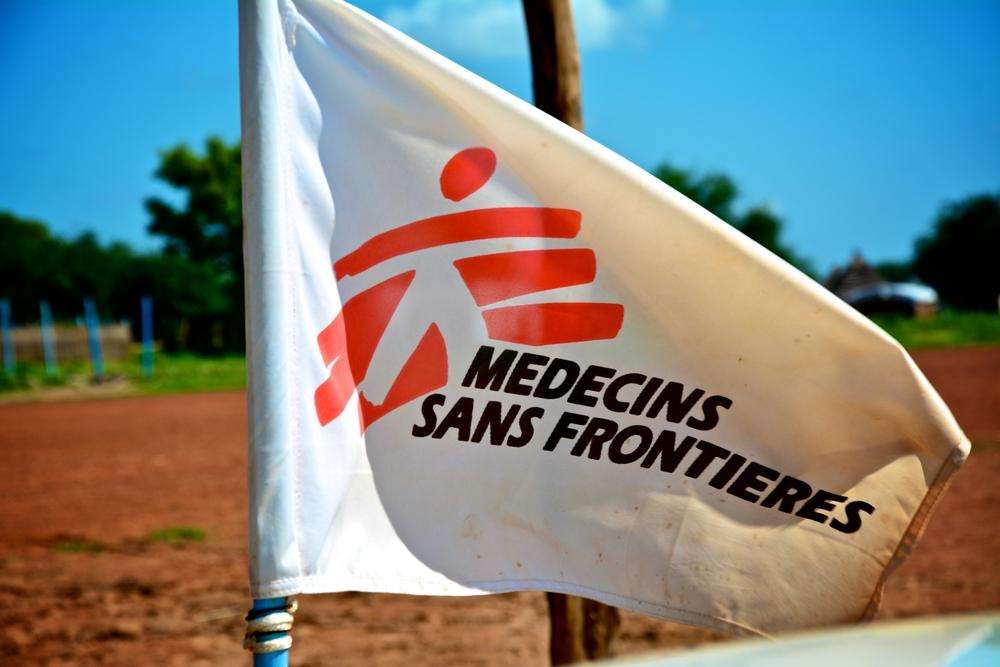
MSF medical staff examine a woman for the Ebola virus in Bundibugyo district. Uganda © Claude Mahoudeau/MSF
No new cases of Ebola hemorrhagic fever have been reported since December 23 in Bundibugyo district, Western Uganda, and the epidemic is believed to have been brought to an end. Doctors Without Borders/Médecins Sans Frontières (MSF) teams have been taking care of Ebola patients in the area since early December.
The last figures show that 148 people have caught the disease since the first cases were reported in early August, and 37 of them have died over a period of a few weeks. Authorities officially declared the epidemic on November 28.
Ebola and Marburg fever are highly contagious hemorrhagic fevers, neither of which have a specific treatment. They are thought to be transmitted through the ingestion of bush meat, monkey meat in the case of Ebola. The monkeys may have been infected by a healthy carrier, possibly a bat.
The MSF intervention first focused on the isolation of the patients, as well as on the active research of sick people who had been in touch with confirmed cases, and it has been very efficient. Less than a month after the start of the intervention, it seems that the chains of transmission of the Ebola virus have actually been broken.
In Kikyo, a few kilometers away from Bundibugyo, the district’s main town, where the epidemic seems to have started, one of MSF’s two isolation units was dismantled and completely decontaminated on January 8.
As of today, only one patient remains under observation in the other isolation unit, set up in Bundibugyo’s hospital. There is a strong possibility that this patient was not infected by Ebola.
The MSF teams, composed of around 20 expatriates and 60 local staff, will progressively reduce their activities while continuing to train national healthcare staff. Their aim is to increase the local capacity for diagnosing the disease so patients may be provided a quicker response and care.
According to international recommendations, the end of the epidemic can only be declared after two 21-day periods from the day the last case has been isolated, with no new cases. However, after the first 21 days, the area may be considered “Ebola free”. That date, January 12, was much anticipated by the local population. With good reason, Ebola is an extremely feared disease here. That fear might have been one of the factors that limited the spread of the virus.
Meanwhile, MSF staff are carrying on with their activities: counselling to the victims’ families, training medical staff, and conducting epidemiological research in order to verify that the virus’ transmission chains have indeed been broken.




